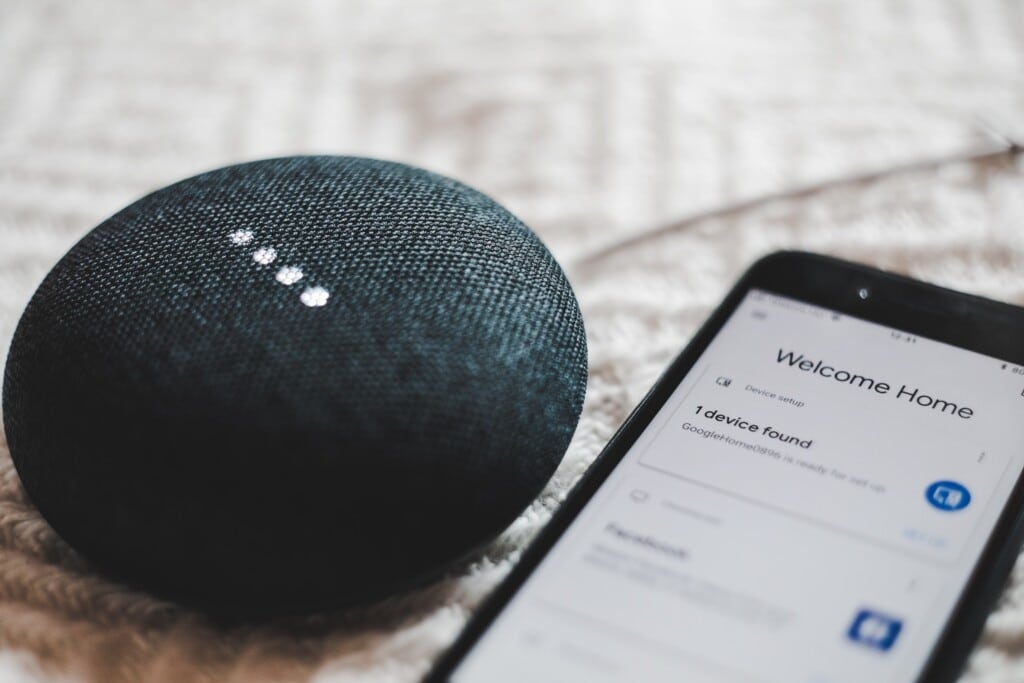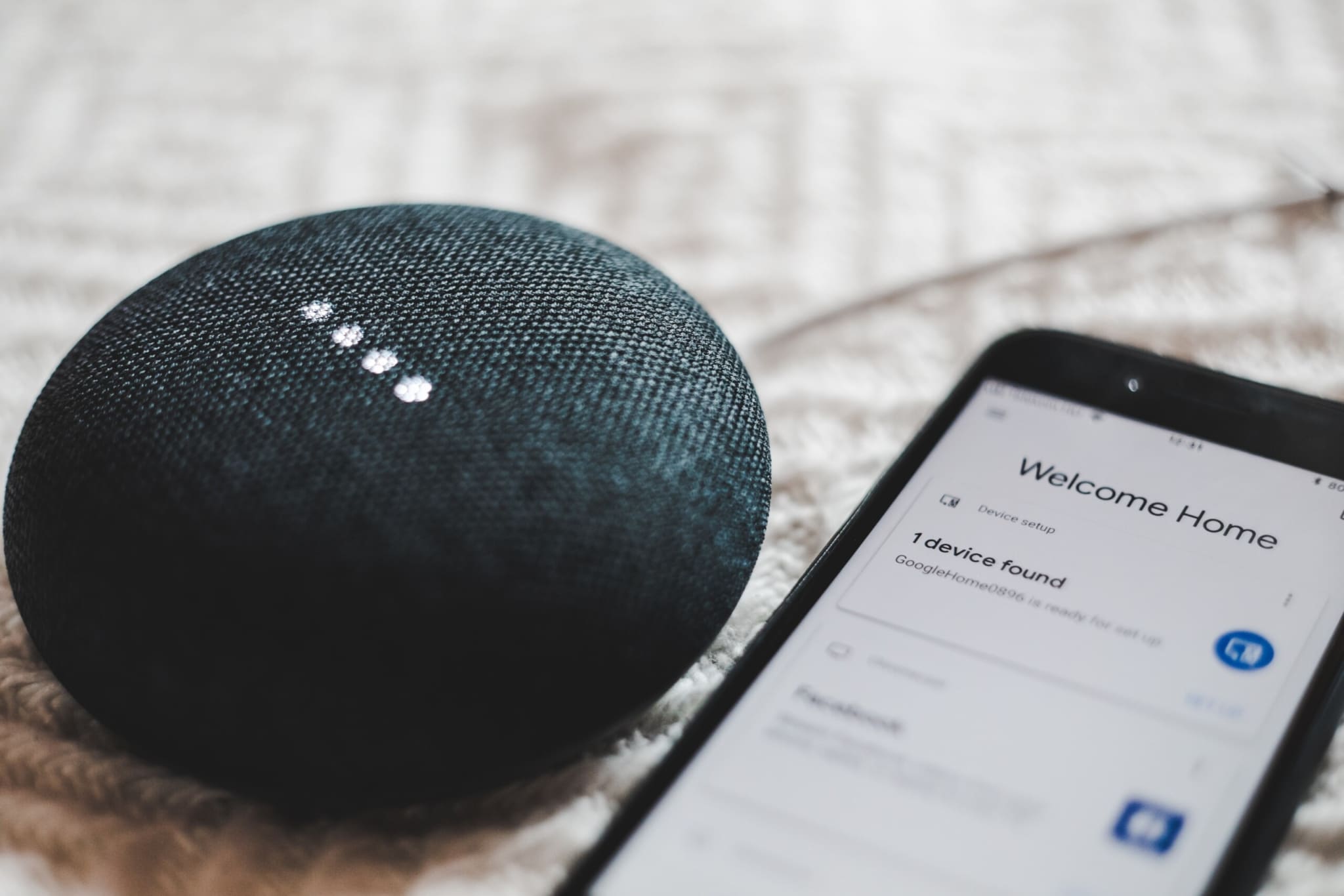The Pros & Cons of Smart Home Technology

More and more homes are being equipped with devices, bringing them into the world of smart home technology. Smart home devices range in applications and types, from window blinds to doorbell security. However, smart home technology is not foolproof—there are drawbacks.
Here are some pros and cons of smart home technology to help determine if it is the right choice for you and your home!
What is Smart Home Technology?
Simply put, smart homes rely on the marriage between home amenities, systems, and communication technology, allowing remote control and automation. You can find smart home devices for every kind of use—from refrigerators to garage doors and entertainment systems to environmental controls.
Connecting your appliances and utilities to your smartphone can be incredibly useful, saving time and energy, but smart home technology also comes with disadvantages. Let’s take a closer look at the aspects of installing smart devices in your home, both good and bad.
Pros of Having A Smart Home
Most people agree that smart home technology is an excellent addition to a home. It makes your life easier and more secure. The following are some specific advantages of installing smart technology into your home!
1) Accessibility
Smart homes can be fully controlled with one device. As long as you have a smartphone and an internet connection, your home can be monitored and instructed right from the handheld screen, giving you full control over the appliances and systems in your home, no matter your location.
Additionally, the accessibility of smart home technology means that people living with mobility difficulties can rest easier. Instead of physically going to a room for a task, you can initiate the process on your device. This is a tremendous help to anyone who struggles to move around comfortably.
2) Ease of Convenience
With the integration of smart technology, your home will inevitably become more convenient. Automated systems can be tailored to your specific needs, such as wake-up time, personal routines, heating preferences, or favorite musical artists when you’re ready to relax.
Smart technology works to save you effort for many tasks in day-to-day life. Regulate the air temperature from the couch, adjust the lighting in a different room, or check to see who is at the door, all from your smart home device.
3) Efficiency
Smart home devices are great for energy efficiency, recognizing peak hours, and avoiding usage during designated times. The devices monitor your routines and provide behavior-based automation, from sprinklers to coffee makers. Smart home systems save time and effort and take the place of continuous human assistance.
4) Cost Savings
While smart home technology can come with a high upfront cost, it can save you significant funds over time. With systems monitoring energy usage, you can expect large savings in utilities, heating, and cooling. Additionally, you can sometimes apply for government subsidies, insurance discounts, or tax benefits with smart devices.
5) Personalization
With smart home technology, you can completely customize your entire house to your preferences and schedule. Program the coffee maker and bedroom blinds to activate when you wake up and set the house to cool during the day while you are gone. Your fridge can even notify you which vegetables you’re low on while at the grocery store.
6) Resale Value
Installing smart home devices is a good way to increase the resale value of your home. On the housing market, smart homes tend to draw a higher selling price. Buyers are willing to pay more for a house that already has smart devices fitted, including smart security, appliances, climate control, and energy efficiency.
7) Security and Surveillance
Not only does smart technology enhance the security of a home, but you also get notifications of movement and recorded footage should anything go wrong. Doorbell cameras have motion sensors and wide-angle cameras to keep a virtual eye on your property. In addition, state-of-the-art locks and biometrics help prevent fiddling or break-ins.
You can monitor your home from anywhere in the world with smart devices. Smart locks can be programmed to grant certain people entry at specific times of day and keep a log of all entries and exits. Discrete video surveillance meshes into the fabric of the system, allowing for comprehensive protection and security.
Cons of Having A Smart Home
Though smart home technology is handy for convenience, complications can still occur. It’s important to understand the downsides that come with smart devices, including any additional risks and costs.
1) AI Concerns
With science fiction and mass media’s influence, people often wonder just how far smart technology will go—characters like HAL 9000 can make even the most tech-savvy person trepidatious. Companies that produce these devices may collect information on your habits and preferences for marketing purposes, such as target advertisements.
But overall, smart home devices have proven to be safe, reliable, and efficient. Smart home users have the final say when controlling their house and systems, and security permissions typically need to be accepted when setting up smart devices to protect private information.
2) Compatibility Issues
Unfortunately, with all the variety of home technology brands, some systems might not be compatible with each other or your device. Depending on your smartphone’s manufacturer, some brands will work better than others—for example, Apple’s HomePod will be more compatible with iPhones and Google Home for Android users.
3) Complications
Though most smart technology is quite user-friendly and has intuitive navigational interfaces, it can still be complicated. Most users need to be somewhat tech-savvy to implement smart technology. The entire process can be a learning curve and may continue to be complicated if not set up correctly.
And similar to the compatibility issue, you may find controlling all aspects of your home automation from a central platform is impossible. You might have to sign in to your security system from one location to manage it and log into a different device to monitor your thermostats, which is a hassle.
4) Hacking Dangers
Being attached to the internet can be helpful but also comes with its downsides. Connecting aspects of your home technology to the internet adds a new danger: cybercriminals. Some devices do not have dedicated anti-virus or hack-proof software, so you have to encrypt your network with WPA2 to protect smart devices from hackers.
5) Installation Costs
Depending on the age of your home and the accessibility of systems, installing smart technology could come with significant costs. Beyond the initial purchase price, integrating the devices with in-wall wiring, connections to utility systems, and other considerations can get costly. You may need to pay a monthly subscription fee, too.
6) High Price
Like other aspects of home improvement, installing smart technology can be expensive. Smart home products are currently some of the most sought-after on the market, so your budget and wallet will feel the strain. Plus, if you need to rewire any devices in your home, this will also come at a cost. Ensure smart technology is a good investment first!
7) Vulnerability
Not only is smart technology vulnerable to cyber-attacks such as hacking, but it can also be affected by power surges or power outages. Whenever your internet network goes down or is compromised, most of your smart home systems will cease to work. But you can mitigate risks by having auxiliary power backups ready.
Additionally, voice command features do not always have idea authorization protection. If your devices are operational by voice command, anyone’s voice can implement them, including children. So you risk people buying things without your knowledge. Deactivation of voice controls fixes the issue, but you’ll have to decide between greater automation and more security.
Is a Smart Home For You?
When considering whether or not to invest in smart home devices, consider how much functionality would benefit your lifestyle before committing to a smart home platform and its services. You can choose between installing a few particular devices or upgrading your entire home—depending on your budget and preferences.
Take your security, accessibility, energy, and comfort needs into consideration. Would greater automation enhance your daily life? For many, it seems that smart home technology is the way of the future, with more homeowners embracing its convenience, but considering your own situation is key to the decision.
Here are some questions to ask when determining if smart home devices are right for you:
- What kind of home do you live in?
- Are you renting, or do you own the property?
- What brand of smart home system do you trust?
- How long will you be staying in the same home?
- Who else will be using the smart home devices on the property?
- How reliable is your internet connection or Wi-Fi network?
- What kind of smart devices do you need for daily life?
- What type of smartphone do you have—Apple, Android, or Samsung?



